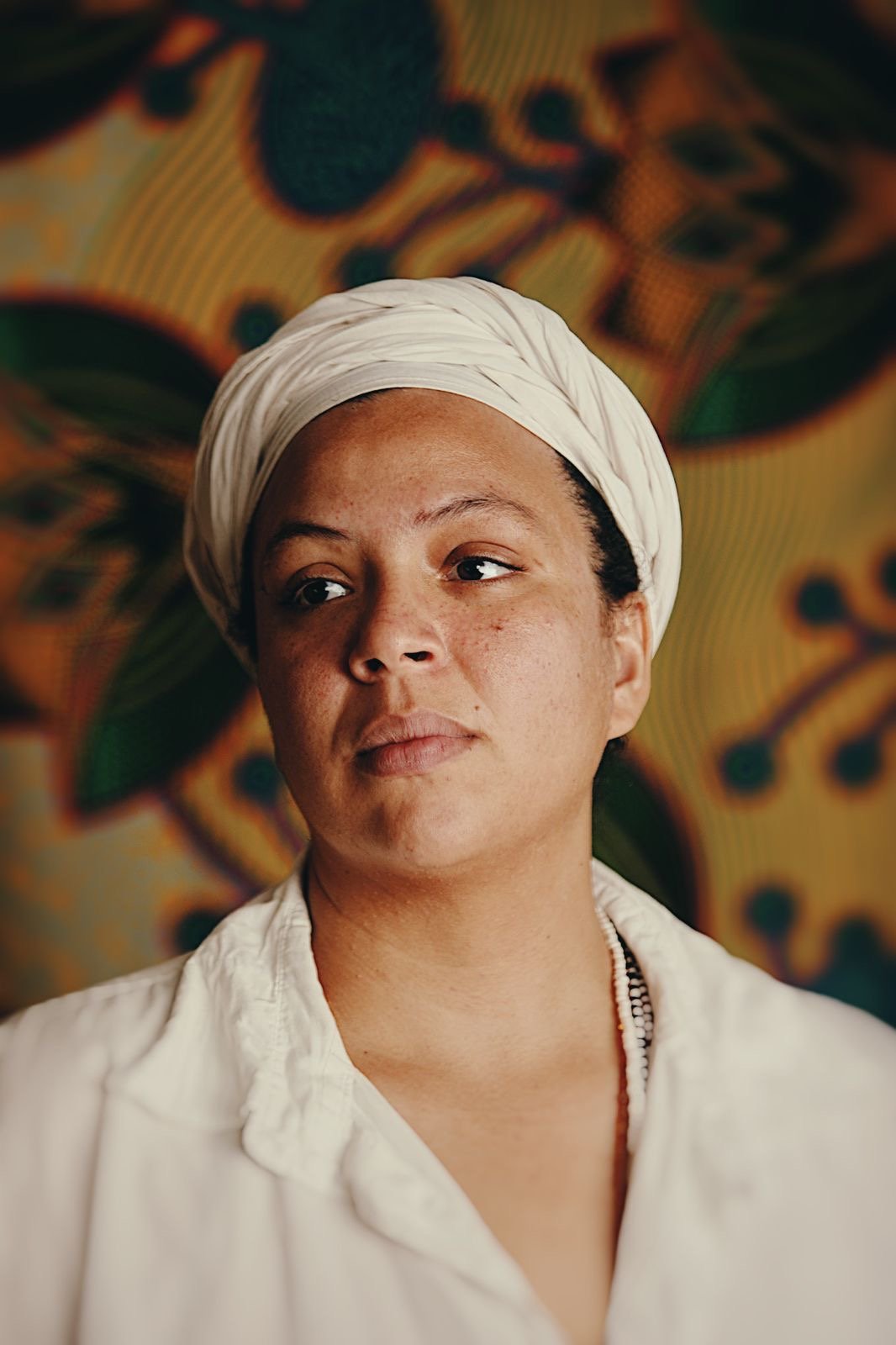Get to know Anastácia Flora Oliveira, The Inaugural Dandara dos Palmares Fellow
Photo of Anastácia Flora Oliveira. Photography by Sedrick Miles.
By Black Women Radicals
Photographer Anastácia Flora Oliveira is Black Women Radicals inaugural Dandara dos Palmares Fellow.
Anastácia Flora Oliveira is Black Women Radicals inaugural Dandara dos Palmares Internationalist Black Feminist Fellow. The fellowship is a six-month online residency for emerging, working-class Black feminist organizers, artists, and educators whose work is dedicated to building, expanding, and transforming the frame of reference of Black feminisms through political, cultural, and artistic means. Named in honor of Dandara dos Palmares, a 16th century Black Brazilian warrior and Queen of the Quilombo (maroon settlement) of Palmares, who resisted Portuguese colonizers until her death, this fellowship serves as a global and community-centered Black feminist quilombo, where Black feminists can build, create, dialogue, experiment, write, and more in efforts to explore the power of Black feminist politics, possibilities, imaginations, and futures.
The fellowship will host emerging Black feminists from working-class and poor backgrounds to disrupt classist and elitist positionalities that often undergird our understandings of fellowships and residencies and its privileging of prominent upper-to-middle class academics and activists. Moreover, the fellowship serves to disrupt and decenter Black feminisms that overwhelmingly focus on the Global North to continue to build radical left Black feminist solidarity and internationalist praxis. In honor of its namesake, the first Dandara dos Palmares Internationalist Black Feminist Fellow is from Brazil, which houses the largest Black population in the African Diaspora.
The first organizational partner of the fellowship is Atlantic Archives, which helps working class, grassroots groups, and individuals in Brazil to create community-driven heritage projects and connect them with a diverse, international network. Black Women Radicals has previously partnered with Atlantic Archives on the fourth iteration and first global campaign of Black Feminists Taught Me, a t-shirt capsule and collaboration between Black Women Radicals and Philadelphia Printworks. The campaign with Atlantic Archives honored and celebrated Black feminists in Salvador da Bahia, Brazil.
An Interview with Anastácia Flora Oliveira
Below is a transcript of a video interview of Anastácia Flora Oliveira, taken in Salvador, Bahia, Brazil. In the interview, Anastácia shares her greatest inspirations to her work.
Photography and Videography by Sedrick Miles.
Translations from Brazilian Portuguese to English by Evelin Rodrigues.
“I'm Anastácia Flora Oliveira, I'm from São Félix in the Recôncavo region of Bahia, I'm a photographer and image researcher and I'm the first Dandara dos Palmares fellow. It's all the people from my region of Recôncavo, this place is a big inspiration in my life. It's my grandmother, my grandfather and Dandara dos Palmares, Lélia Gonzalez, among so many black women who have been in this land and who still inspire us today.”
“I think there would be many people for me to talk about, especially my grandfather, who is this important person for me, who is my inspiration in life, but I would like to mention three names of women who inspire me and who come to mind now. The first is my great-grandmother Joana... I thank her for her rebelliousness, her boldness... and whenever I'm feeling a bit discouraged, I always think of her.”
“And I would like to talk about my yalorixá, Mãe Graça de Nanã, who has also inspired me to be a more generous and welcoming person, as the leader of a terreiro (Candomblé temple), she is always this woman, right, who welcomes and who brings generosity to occupy this space of power and leadership, and who is also always vigilant against oppression, right?”
“And I would also like to talk about Doña Joca, who is a lady I met at UNILAB [Universidade da Integração Internacional da Lusofonia Afro-Brasileira] and who, after 60 years of life, managed to get into university and was doing her second degree after having gone through various forms of violence and oppression as a worker, a domestic worker, was managing to study and she was very happy about it. So, I would like to talk about these three names now and thank them for their lives and existence.”






